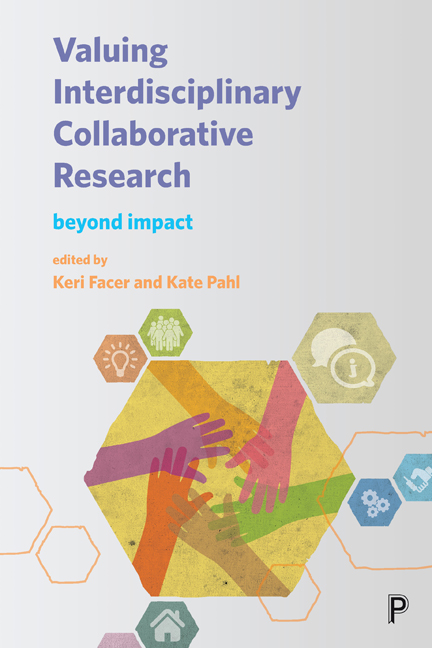Eight - Translation across borders: connecting the academic and policy communities
Published online by Cambridge University Press: 05 April 2022
Summary
Introduction
In this chapter we look at the legacy of a set of Connected Communities (CC) projects which made connections between the ‘research community’ of academics and the ‘policy community’ of civil servants based at the Department for Communities and Local Government (DCLG), UK. They had the potential to leave behind something which might have significant effects at a national scale, – ‘impact’ in the current policy jargon. We make a distinction here between ‘legacy’ in a very broad, everyday sense of ‘anything handed down by … a predecessor’ (OED, online edition) and ‘impact’ with its specific policy meaning of ‘an effect on, change or benefit to the economy, society, culture, public policy or services, health, the environment or quality of life, beyond academia’ (HEFCE, 2015). Colloquially, the ‘impact agenda’ refers to the increasingly insistent pressures on the academy to achieve demonstrable impact; in this sense it is an external pressure which may reinforce or conflict with academics’ own commitments to achieving social change through their research.
The three interdisciplinary projects created ‘policy briefs’ for the DCLG, the UK government department responsible for localism, local government, housing, planning and related functions in England. As a central government policy-making body, DCLG is continually in search of robust, research-based evidence to support its work. The policy briefs were to be short and accessible reviews of research relevant to policy on localism. In particular they were intended to identify novel insights from the Arts and Humanities in order to broaden the range of ideas available to policy makers.
Projects in focus in this chapter
The legacy explored here is that of three CC projects, commissioned to create ‘policy briefs’ to inform policy making in DCLG. Their topics, agreed between the Arts and Humanities Research Council (AHRC) and DCLG, were local representation, co-production of local services, and accountability in the context of decentralisation and fiscal austerity. In this chapter we refer to these as ‘the representation brief’, ‘the co-production brief’ and ‘the accountability brief’.
The principal written outputs were Connelly et al, 2013 (representation), Durose et al, 2013 (co-production), and Richardson and Durose, 2013 (accountability). The latter two project teams overlapped in membership, while the representation brief project was entirely separate.
The project through which this legacy was explored was called Translation across Borders.
- Type
- Chapter
- Information
- Valuing Interdisciplinary Collaborative ResearchBeyond Impact, pp. 173 - 190Publisher: Bristol University PressPrint publication year: 2017



